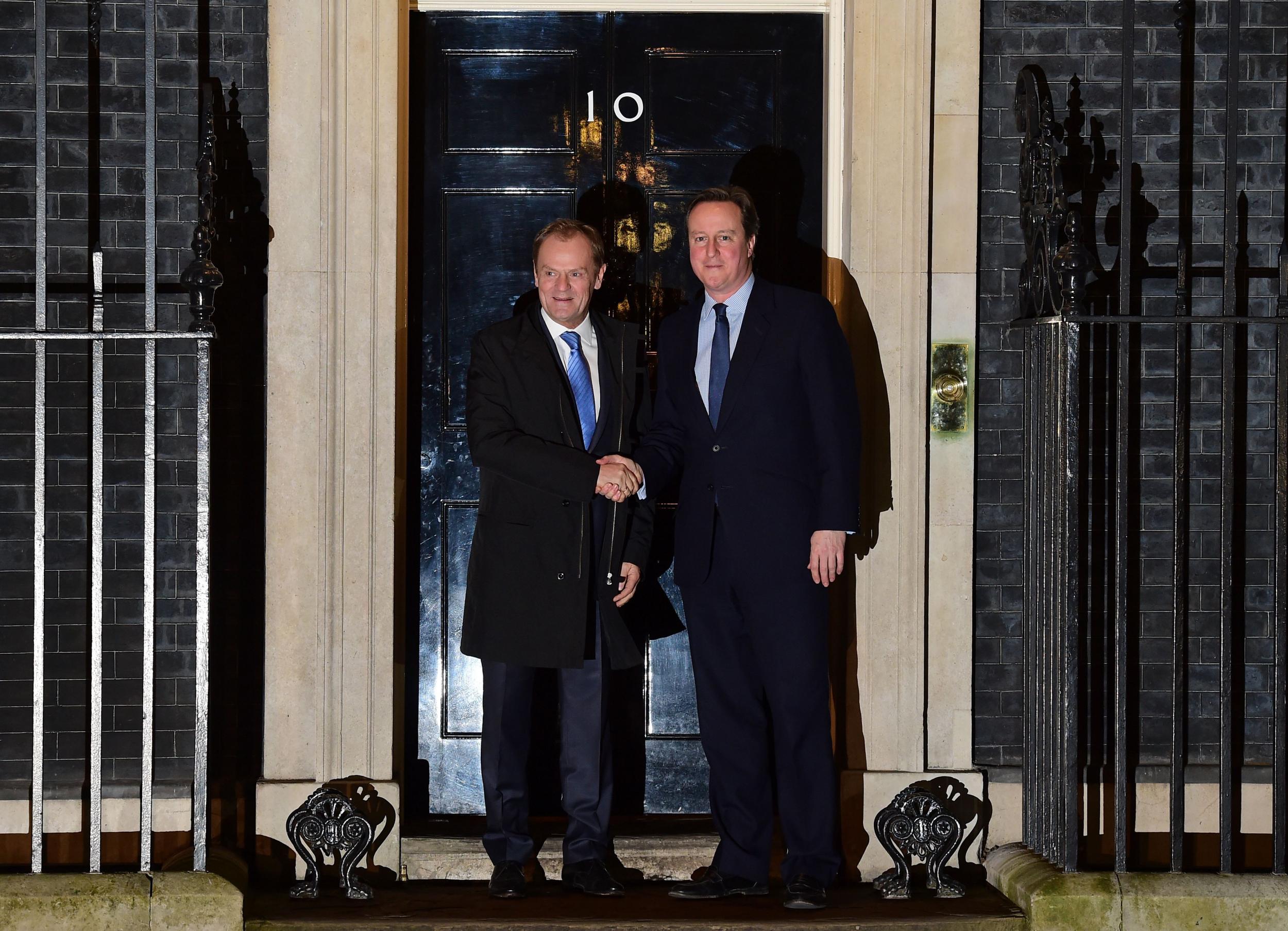EU referendum: David Cameron has 24 hours to strike a deal with Brussels after talks fail
Downing Street reportedly lays on dinner of smoked salmon followed by roast beef and apple and pear crumble for European Council President

Your support helps us to tell the story
From reproductive rights to climate change to Big Tech, The Independent is on the ground when the story is developing. Whether it's investigating the financials of Elon Musk's pro-Trump PAC or producing our latest documentary, 'The A Word', which shines a light on the American women fighting for reproductive rights, we know how important it is to parse out the facts from the messaging.
At such a critical moment in US history, we need reporters on the ground. Your donation allows us to keep sending journalists to speak to both sides of the story.
The Independent is trusted by Americans across the entire political spectrum. And unlike many other quality news outlets, we choose not to lock Americans out of our reporting and analysis with paywalls. We believe quality journalism should be available to everyone, paid for by those who can afford it.
Your support makes all the difference.David Cameron has less than 24 hours to strike a deal with Brussels if he is to secure a reform package in time for an early EU referendum, after talks with the European Council president failed.
The Prime Minister had hoped to finalise a draft renegotiation of Britain's EU membership over dinner on Sunday evening with Donald Tusk, so that it could be put to other leaders.
But after less than two hours of discussions, Mr Tusk left Downing saying "intensive work" would be required over the next 24 hours if a draft agreement was to be published on Tuesday. Asked about the dinner by reporters, the former Polish President declared “no deal”.
Mr Cameron said it was “a good meeting” on his Twitter account.
Attempting to impress their guests, Downing Street laid on a dinner of smoked salmon followed by roast beef and apple and pear crumble for Mr Tusk and his advisers, according to reports in the Times.
It was reported, however, that Mr Cameron had secured a crucial assurance that a proposed “emergency brake” – a mechanism that could be put in place days after the referendum – on welfare payment to EU workers could be triggered on the present level of immigration.
It is Mr Cameron’s pledge to ban in-work benefits for EU migrants for four years that has been the most contentious point throughout the Prime Minister’s renegotiation talks with European leaders. Eastern European countries – who believe this unilateral ban will adversely affect their citizens – have expressed the benefit change would be discriminatory and in breach of the freedom of movement principle.
While Mr Cameron has not said explicitly how long such a “brake” would last, Downing Street sources said it would have to be for a meaningful length of time – perhaps as long as seven years with re-assessments.
Mr Tusk is expected to issue a report on 1 February setting out the broad legal basis of the proposals. However any final deal will have to win the approval of all 27 member states at a European Council meeting later this month.
Ahead of the talks, Downing Street claimed: “The Prime Minister intends to leave Mr Tusk in no doubt that he will not do a deal at any price, making clear he is not in a hurry and that it’s far more important to secure significant reforms.” A crucial summit will go ahead in less than three weeks.
Join our commenting forum
Join thought-provoking conversations, follow other Independent readers and see their replies
Comments